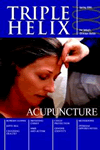The February announcement[1] that South Korean Scientists had cloned 30 human embryos generated the media frenzy and overhyped predictions we have come to expect in this area of research. But the true facts were less impressive.
The team at Seoul National University used 242 eggs from 16 women donors; from which they derived 30 blastocysts. They ended up with just one line of stem cells, derived from a blastocyst made from an enucleated egg and transplanted nuclear material from the same woman.[2] The theoretical possibility of producing stem cells for therapeutic purposes from cloned embryos has thus moved one step closer but many practical difficulties remain.
First, the low efficiency of mammalian cloning (only 0-5% become viable offspring)[3] highlights the high frequency of genetic abnormalities resulting from the technology. It is not yet known whether similar abnormalities would occur in stem cells derived from cloned embryos, but it stands to reason that they would. Second, some of the diseases given as candidates for cell therapy are autoimmune conditions like type I diabetes; suggesting that cloned stem cells derived from the patient would induce the same rejection when transplanted and thus be ineffective. Third there remain concerns, based on the difficulty of controlling the growth of transplanted fetal cells, about embryonic stem cells functioning abnormally after transfer.
These concerns about the likely effectiveness and safety of therapeutic cloning have not been truthfully conveyed to a public fed on 20 second soundbites which fail to do justice to the scientific facts or complex ethical issues involved.
Even if the practical difficulties are overcome, the key ethical objection remains. The end of saving life cannot ever justify the means of creating and cannibalising human embryos, cloned or otherwise. Furthermore, allowing such research at all will lead inevitably to attempts to produce reproductive clones, as long as rogue scientists exist. And meanwhile, huge advances in the ethical alternative of adult stem cell technology continue to make embryo cloning rapidly redundant.
It is very sad that the British media and public have been consistently misled into seeing cloned embryos as a panacea for treating diseases like Parkinson's and Alzheimer's, through the Government's failure to highlight the dangers and to rectify misconceptions about the properties of adult stem cells propagated in the now seriously dated 2000 Donaldson report Stem Cell Research.
Selective interpretation and presentation of scientific data is both irresponsible and dangerous because it falsely raises the hopes of vulnerable people. Honest and balanced reporting of the facts should always take precedence over the prestige and profit motives of the British government and biotech industry.
Cloning and cannibalising embryos for stem cells in the way that the Korean scientists have is unsafe, unnecessary and unethical. A gullible and ill-informed public needs to be better informed of the dangers and made more aware of safer ethical alternatives for developing treatments for people with degenerative diseases.
































